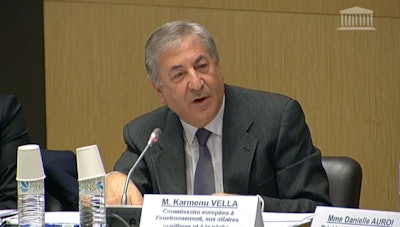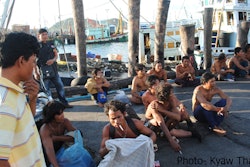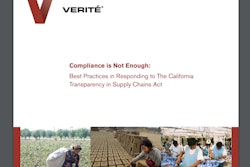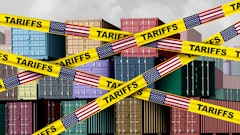
A group of international labor, environmental and human rights organizations, including Human Rights at Sea, has sent a letter to Karmenu Vella, the EU Commissioner for fisheries, maritime affairs and environment urging the Commission to maintain pressure on Thailand on human rights abuses in the nation’s fishing industry, according to Maritime Executive.
The aim is to convince Thailand to build upon positive reforms that have recently been made to its fishing industry, to ensure that the reforms have longevity and to address the structural problems that facilitate both illegal, unreported and unregulated (IUU) fishing and human rights abuses.
The letter notes that Thailand has made some progress on monitoring, control and surveillance of vessels within its fishing fleet since the Commission first made its yellow card designation in April 2015, but cites concerns over lax enforcement of those measures and ongoing vulnerabilities among Thailand’s migrant worker population that leaves them prone to exploitation in seafood harvesting and processing.
The organizations encourage the Commission to keep pressure on the government and the industry high until Thailand can demonstrate results from actions taken against human traffickers and their enablers, who force men and boys from Myanmar, Cambodia, Thailand and Laos to endure a life of misery as victims of trafficking in the Thai seafood industry.
To read more, click here.
Editors Insight: Human rights in the food supply chain is becoming an “attribute” that supply chains will be expected to track. It will become an element of a sustainable supply chain. The definition of sustainability has expanded beyond environmental sustainability over the years. The key pillars of sustainability are social, environmental and economic.
To demonstrate sustainability, companies will be expected to ensure their operations monitor unsafe food and animal cruelty in addition to unfair labor practices.
Not being aware of these problems in the food supply chain will not be considered an excuse for supply chain companies. There are various organizations working to end unfair labor practices. Such organizations include the Food Empowerment Project, EndSlaveryNow.org, Antislavery.org and Fair Trade USA. 2-23-16 By Elliot Maras


















